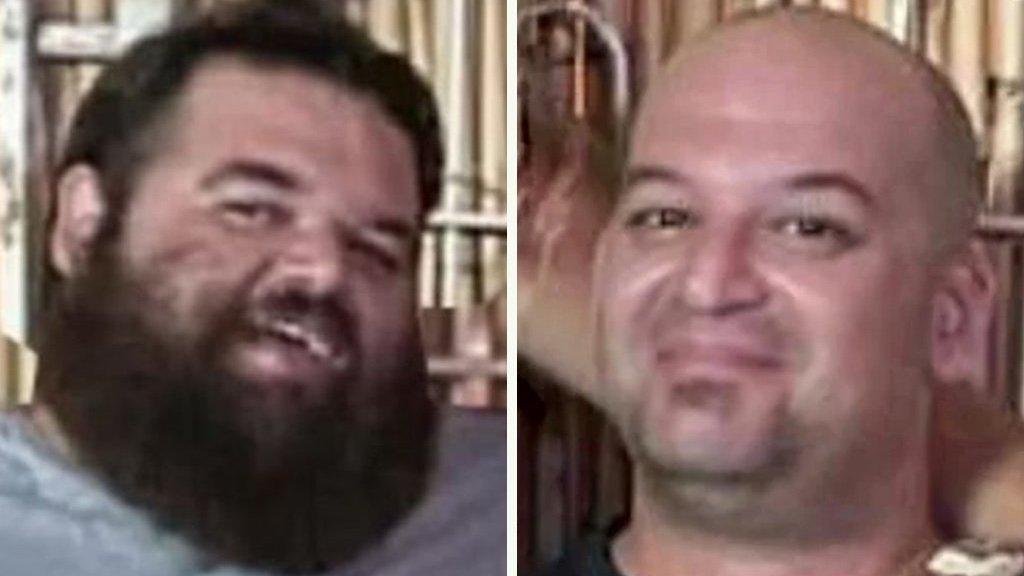Mediators push for Gaza ceasefire deal but gaps remain between Israel and Hamas
- Published
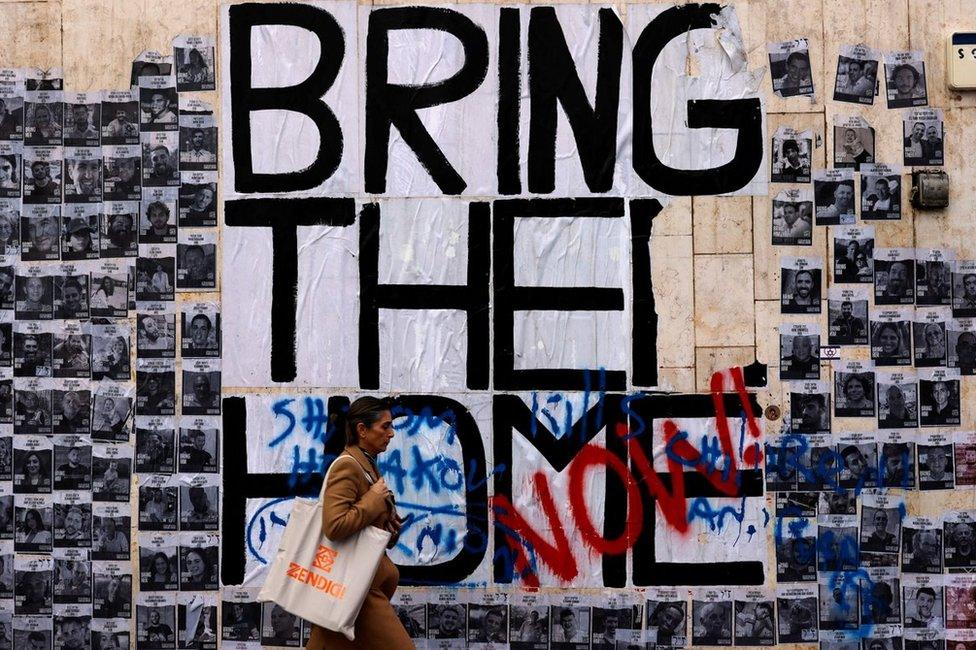
A Palestinian source says a five-stage proposal would start with a truce in exchange for the release of Israeli hostages
There is huge pressure for a new ceasefire and hostage release deal to alleviate the suffering of Palestinian civilians in Gaza and the remaining Israeli hostages held by Hamas.
Up to now, weeks of mediation by Qatar and Egypt with US involvement have brought no breakthrough.
But in recent days, more reports have suggested "serious" progress is being made in indirect talks held with delegations from Israel and Hamas.
At the same time, on Wednesday, unnamed Israeli officials quoted by the Israeli media are cautioning that there is a "very large" gap on fundamental issues.
From what the BBC has learnt, the main block appears to boil down to major differences over how to bring a complete end to the war.
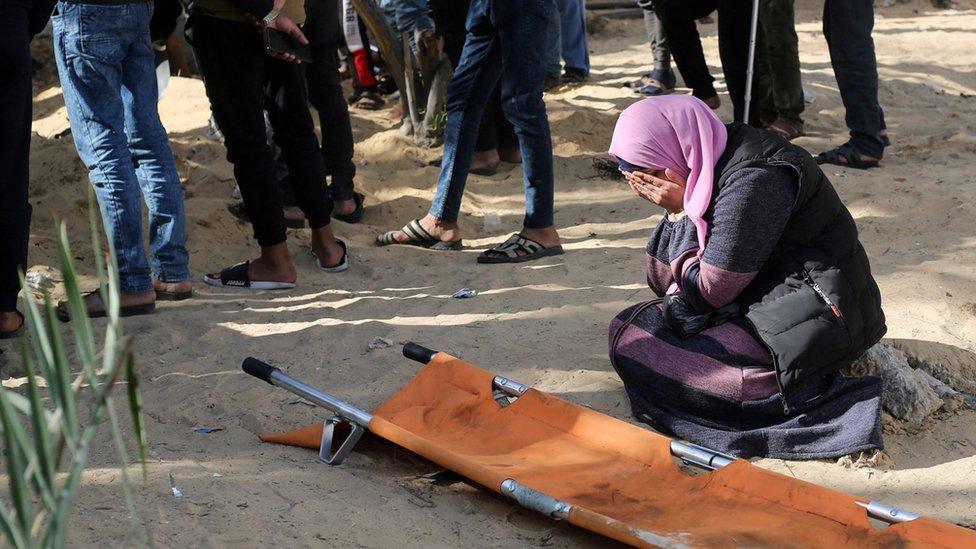
Intense fighting is continuing between Israeli soldiers and Hamas fighters in southern Gaza
A senior Palestinian official, who is familiar with ongoing talks, told us that Cairo had laid out a new five-stage framework to Hamas officials.
This is said to start with a humanitarian truce, during which Hamas would release the remaining civilians it is holding hostage, including women, children and the elderly.
In exchange, some Palestinians would be freed from Israeli jails and the amount of desperately needed aid going into Gaza would increase.
Finally, there would be a long-term ceasefire and complete cessation of hostilities.
The handover of the remaining Israeli hostages would be accompanied by further Palestinian inmates being allowed out of prison, according to our source.
The indication is that the release of more high-profile Palestinian prisoners would be sought in exchange for the captive Israeli soldiers.
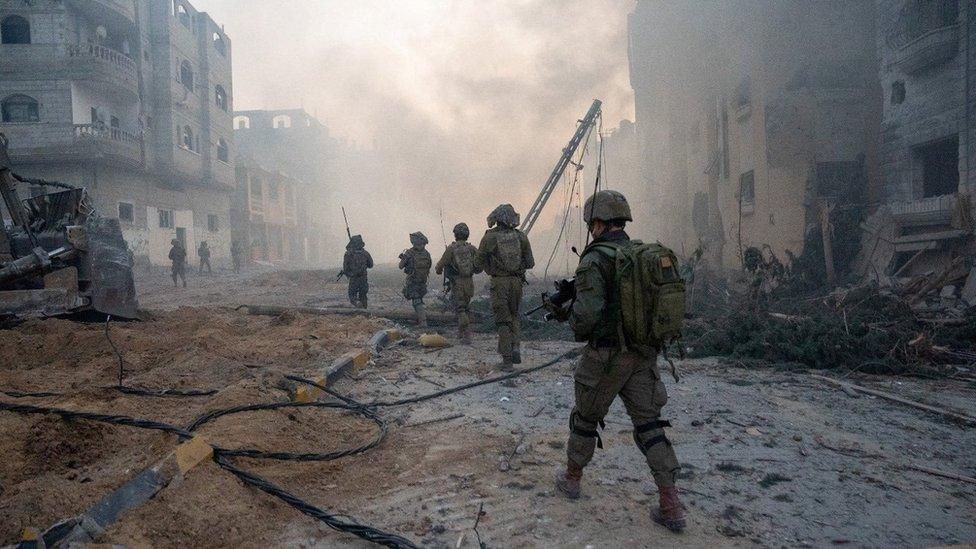
A main sticking point is said to be at which point Israeli troops would withdraw from Gaza
The Palestinian official said that Israel was insisting on keeping its forces on the ground until the last stage of the process.
We were told that Hamas has demanded that the complete withdrawal of Israeli troops and return of displaced residents to their homes takes place earlier.
Other international media reports have said that while Hamas is demanding a full ceasefire, Israeli negotiators are only prepared to accept a pause that would last weeks, but could be extended as conditions evolved.
At a news conference on Tuesday, Qatar's foreign ministry spokesperson, Majed al-Ansari said: "We have presented ideas to both sides, we are getting a constant stream of replies, and that in its own right is a cause for optimism."
Later, White House spokesperson John Kirby said that the US Middle East envoy Brett McGurk was in Cairo and would continue "active" discussions in the region on a new deal to bring home hostages and secure a humanitarian pause.
"The conversations are very sober and serious," Mr Kirby told journalists.
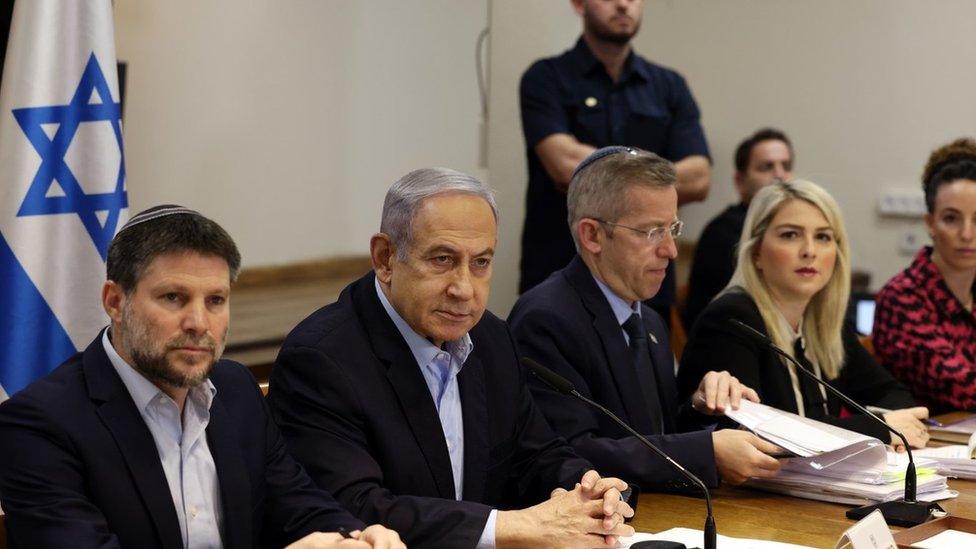
Israeli Prime Minister Benjamin Netanyahu (2nd L) says nothing short of "absolute victory" in Gaza can be accepted
During a week-long ceasefire in late November, 105 Israeli and foreign hostages were freed out of more than 250 kidnapped in the shocking Hamas cross-border attacks of 7 October, which triggered the war in Gaza.
In return, some 240 Palestinian prisoners were released.
Israel and Hamas blamed each other for causing the collapse of the truce by rejecting the terms to extend the daily release of hostages in exchange for Palestinian detainees.
Now, on both sides, inevitably, there are major differences between what is publicly declared and what may be negotiable.
This week, Israeli Prime Minister Benjamin Netanyahu has repeated that nothing short of "absolute victory" in Gaza can be accepted.
Meanwhile, many commentators have suggested that totally destroying Hamas - which has been governing the territory for a decade and a half - is not realistic.
However, one thing that Israel and its Western allies are unlikely to compromise on is that Hamas leaders must be removed from power in Gaza, to ensure that there can be no repeat of the attacks three months ago, which killed about 1,200 people.
Interestingly, there have been unconfirmed media reports this week that as part of a ceasefire and hostage release proposal, Israel had made an offer to allow top Hamas leaders in Gaza to relocate to other countries. Hamas claimed it had rejected such a proposal.
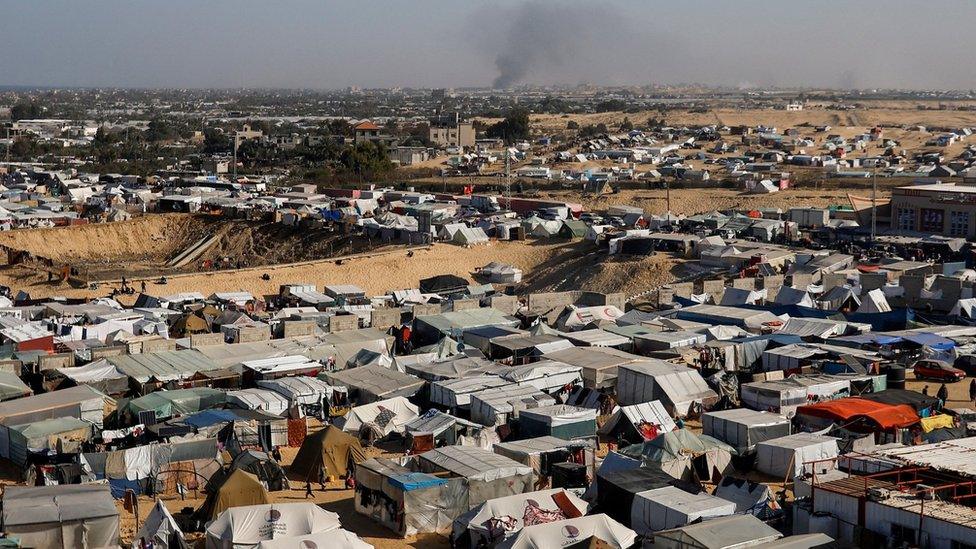
The UN says the humanitarian situation in Gaza is "appalling", with 2.2 million Palestinians living in "inhumane, squalid conditions"
With more than 25,000 people now killed in Gaza, according to local health officials, and a catastrophic humanitarian situation, international calls for a ceasefire have become much harder for Israel to ignore.
Meanwhile, noisy protests and rallies by the families of Israeli hostages ensure their demand to bring home their loved ones has become a priority of domestic politics. They have overwhelming public sympathy.
The latest Israeli reports denying that negotiations with Hamas over a potential hostage release deal are progressing will be a cause for general anxiety.
Unnamed diplomatic officials are being quoted by various Israeli media saying that suggestions of positive developments are "fake". They blame Hamas for a failure to compromise.
With mediators no doubt rushing to try to shore up the process, the most encouraging sign may be that neither Israel nor Hamas has yet indicated it is abandoning the latest rounds of indirect talks.
Correction 13th February: This article wrongly reported that about 1,300 people had been killed following the 7th October attack by Hamas. This was based on counting those who later died from their injuries in addition to the figure of more than 1,200. The article has been amended to now refer to about 1,200 deaths, a figure which includes those deaths and which Israel says is not final.
- Published23 January 2024
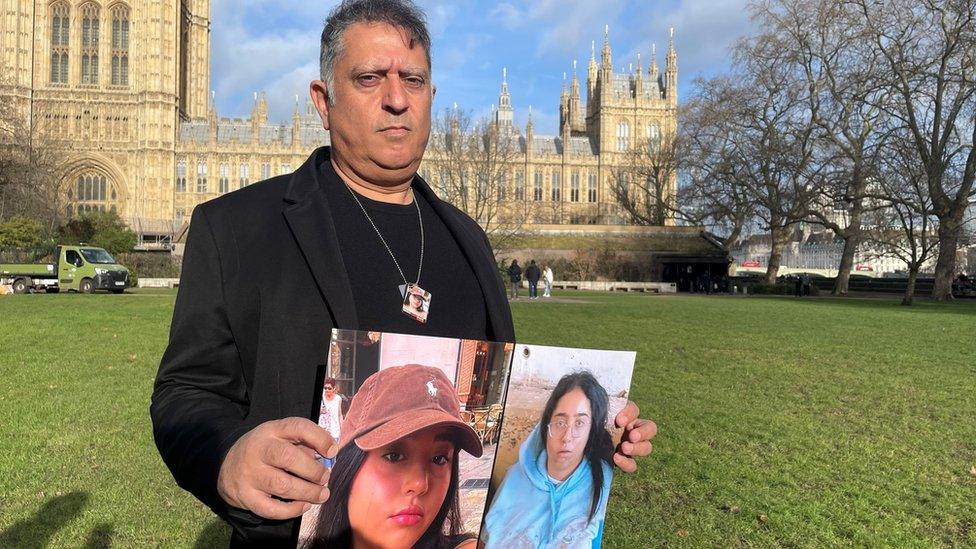
- Published23 January 2024
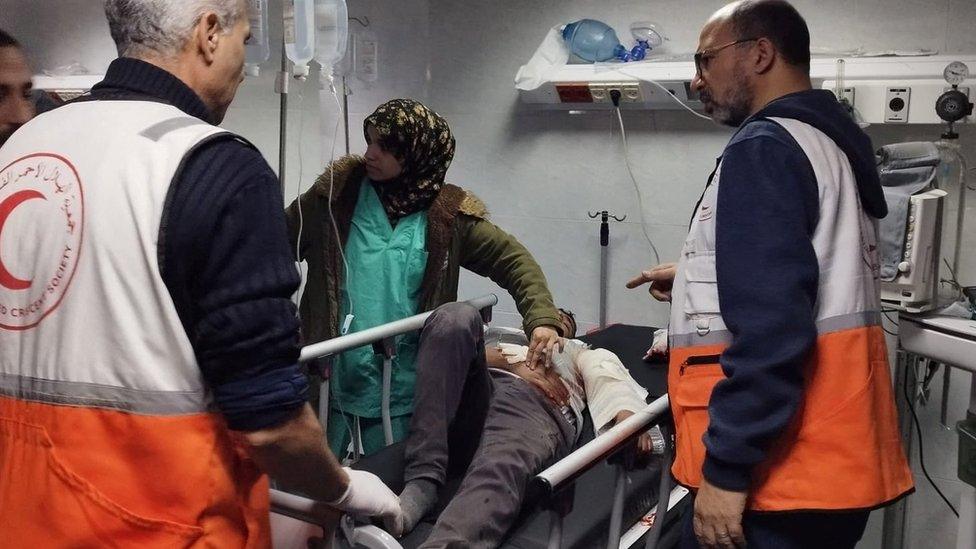
- Published23 January 2024
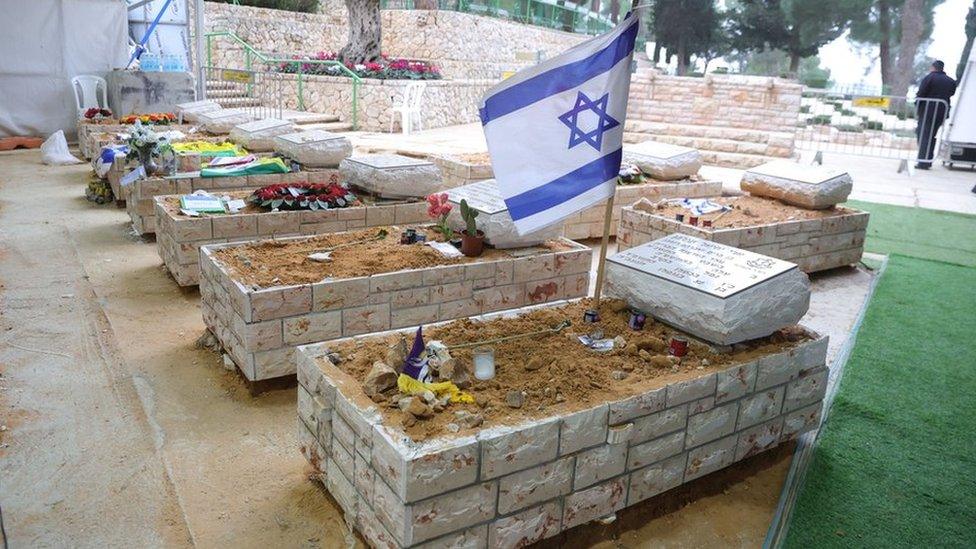
- Published21 January 2024
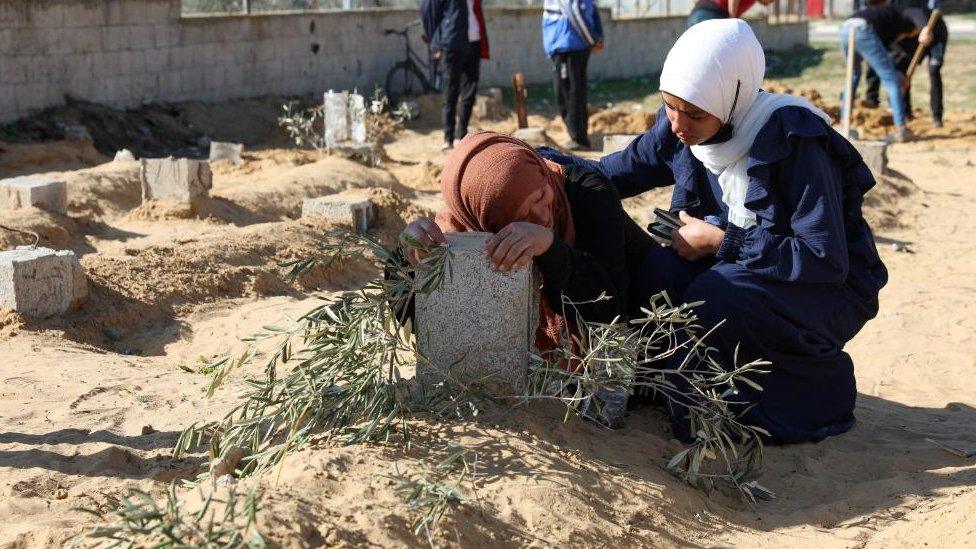
- Published20 January 2024
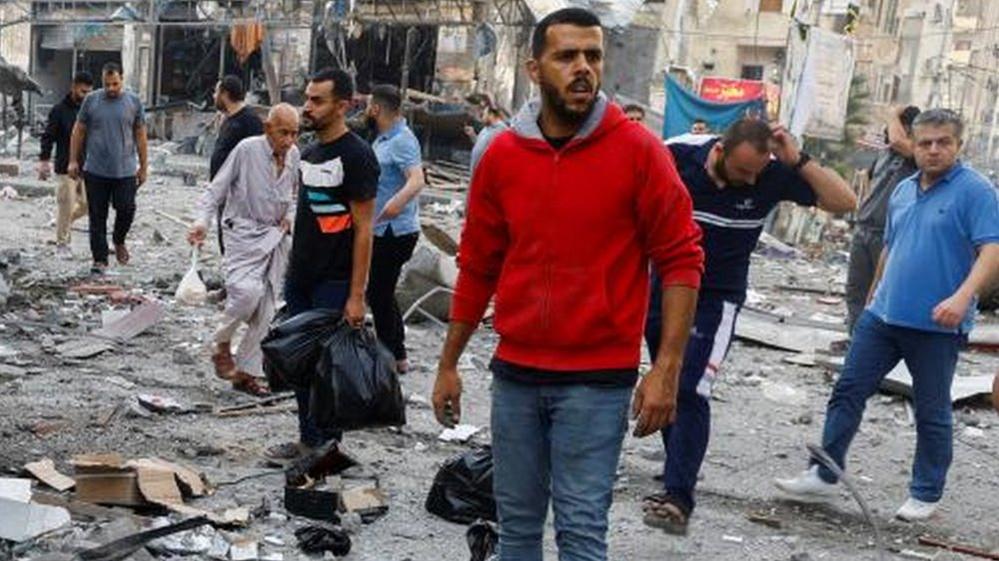
- Published19 January 2024
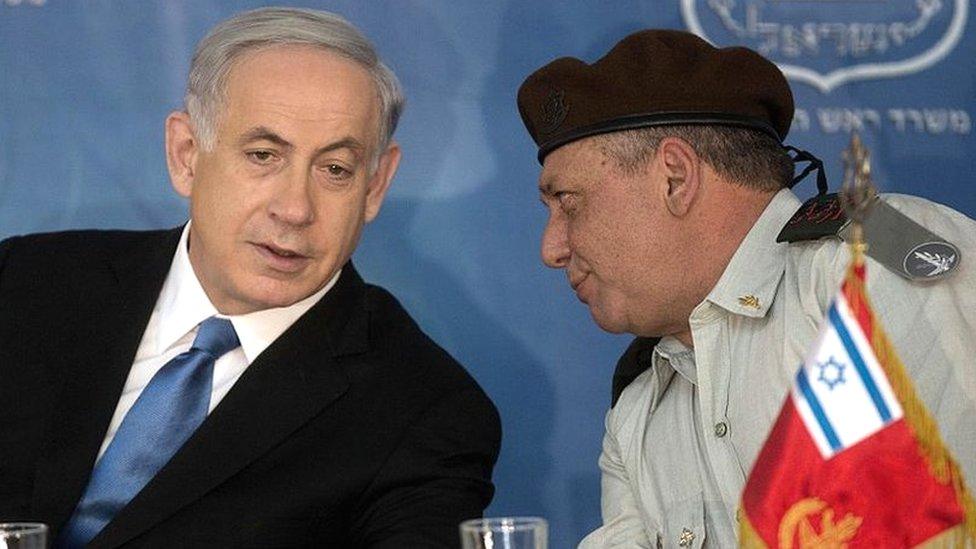
- Published27 February
